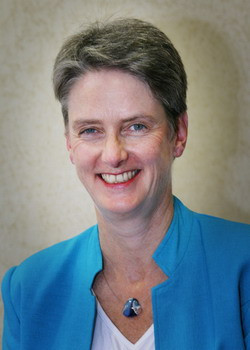Former HRC Board member, Distinguished Professor Jane Harding from The University of Auckland, is to be awarded the Howard Williams Medal for 2014 at the Royal College of Physicians Congress in Auckland next May.
The college’s Paediatrics and Child Health Division awards the medal each year to a person who has made an outstanding contribution to Paediatrics and Child Health in Australia and/or New Zealand.
This may be in the areas of research, education, teaching, administration, or in the development of special services or practice. The announcement was made by the President of the Paediatrics and Child Health Division, Associate Professor Susan Maloney.
Professor Harding’s research activities include clinical as well as basic physiological studies. Her main interests concern the interaction of nutrients and growth factors in the regulation of growth before and after birth, and the long-term consequences of treatments given around the time of birth.
Most recently, she was the lead scientist in a part HRC-funded study (published in The Lancet last month) that developed a cheap and easy-to-administer dextrose gel to treat low blood sugar (hypoglycaemia) in newborns. In June this year, Professor Harding was awarded $1,197,339 in the HRC's annual funding round to test the dextrose gel treatment in a randomised trial.
Professor Harding obtained her medical degree at The University of Auckland, and trained in fetal physiology on a Rhodes Scholarship, completing her Doctor of Philosophy at the University of Oxford. After specialist training as a paediatrician in New Zealand, she completed her FRACP in neonatology.
Her postdoctoral training was as a Fogarty Fellow at the University of California at San Francisco.
Professor Harding was appointed to the Medical and Health Sciences faculty of The University of Auckland in 1989 and was appointed Professor of Neonatology in 1997. She is currently Deputy Vice-Chancellor (Research) for The University of Auckland and is a member of the LiFePATH research group of the university’s Liggins Institute.
News article courtesy of The University of Auckland
